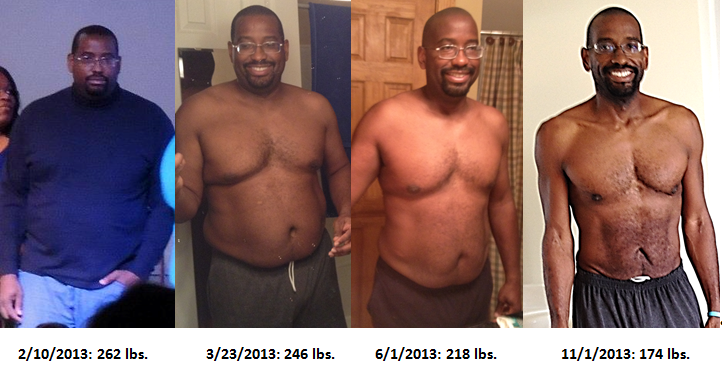
The skin is the largest organ in the body. It regulates temperature, protects us from illness, and helps to prevent them from getting too hot. However, there are some do's and don'ts of skin care. Learn more about skin care. It might surprise you to discover how valuable your skin really is. Find out how skin care can make a difference to your health. And don't forget to apply sunscreen every day!
There are some things you should know about healthy living
Healthy living is key! You don't have to eat too much or eat junk food. Try to eat a variety fresh foods and avoid processed foods. Processed foods are full of preservatives, chemicals, fats, and artificial colours. Consider incorporating fresh fruits and veggies into your daily meals. Vitamins and supplements are an excellent way to keep your body strong and healthy.
The largest organ of the body, the skin, is
Your skin, which is the largest organ in your entire body, performs many important functions. The skin has three layers. The epidermis is the outermost layer. It has dead cells, and is constantly flaking off and washing away. The epidermis is the innermost layer. As they move upward, new cells emerge from the lower epidermis. The entire process takes approximately 28 days. To protect your skin from damaging UV rays, moisturize daily.

The skin is composed mainly of water, proteins and fats. It regulates body temperature, and also contains nerves. It is the largest body organ and houses eleven miles of blood vessels. It is an important organ that needs to be healthy and beautiful. It protects you from the sun and rain. You will have a radiant, healthy skin if you care for it properly.
It regulates the temperature
The hypothalamus, located in the brain, is responsible for temperature regulation. It balances body fluids, regulates temperature control chemicals and maintains salt concentrations. The hypothalamus is responsible for maintaining the body's temperature by working with several parts of the body such as the sweat glands. Blood vessels and vents are also involved. This information allows the hypothalamus temperature regulation.
Animals decrease their metabolic rate when temperatures are too high. This conserves heat. A lower metabolic rate is more affordable, so many animals can survive frosty nights by going into torpor. Biological temperature regulation involves the use of a feedback system, which includes a modulator, effector and stimulus. The system works to maintain equilibrium between temperature, other elements of the organism and their homeostasis.

It protects against disease
A vaccine is any substance that is designed to protect against a certain disease. These medications most often use genetically weakened pathogens. For example, the smallpox vaccine uses the cow skin disease virus to strengthen its genetic material. The "live attenuated", weakened virus is known. But is it safe? Is it safe?
FAQ
These are 5 ways to improve your mental and/or emotional health.
-
Exercise - It improves brain function and raises energy levels.
-
Sleep - Getting enough sleep helps reduce stress and anxiety.
-
Nutrition – Eat healthy foods, such as fruits or vegetables, to keep your body strong.
-
Meditation - Regular meditation reduces stress and anxiety.
-
Socialization – Spending time with our friends and families keeps us happy.
What does a psychologist say about mental health?
Psychologists believe mental health is an important part of human growth. They also believe that mental health is not only about having no mental illnesses but also about being mentally fit.
Mental health is a topic that psychologists have differing opinions on. Some psychologists feel that mental health doesn't matter because there are so few people with mental illnesses. Other psychologists think that mental health is essential because without it, we can't function properly.
How can one determine if they have a mental health condition?
When symptoms interfere with daily life, a person can be diagnosed with a psychological illness. There are many symptoms of mental illness. The most common signs are: sadness and anxiety; feeling guilty, hopeless; lonely; depressed; confused; worthless; guilty, suicidal.
A person may also be diagnosed with a mental disorder if they meet at least three out of four criteria listed below:
-
Disturbed feelings or thoughts
-
Disturbed behavior
-
Disturbance to functioning
-
Inability to relate to others
Statistics
- In any given year, an estimated 18.1% (43.6 million) of U.S. adults ages 18 years or older suffered from any mental illness, and 4.2% (9.8 million) (healthypeople.gov)
- Neuropsychiatric diseases are the leading cause of death and disability in the U.S., accounting for 18.7 percent of all years of potential lifespan loss and premature mortality.
- Similarly, for positive mental health, there is likely to be substantial agreement about some typical components (e.g., resilience to stress) 6, and controversy about more atypical components (e.g., career consolidation). (ncbi.nlm.nih.gov)
- It means no drinking any alcoholic beverages and no taking any drugs that aren't 100% natural.
- More than 50% will be diagnosed with a mental illness or disorder at some point in their lifetime.3 (cdc.gov)
External Links
How To
How to Improve Your Memory
Memory is one of those things that everyone wants to be able to remember better. Unfortunately, memory impairment is something that all of us will experience at one time or another. More than half of Americans aged 65 and older suffer from dementia.
There are many options available to improve your memory, regardless of whether you have Alzheimer's or dementia. These are the three steps that you can take today to improve your memory.
-
Increase your intake of fruits and vegetables. The antioxidants, vitamins, minerals and fiber found in fruits and vegetables can help boost brain function. They also have essential nutrients that protect against neurological disease.
-
Get Enough Sleep. Poor concentration and memory loss have been linked to sleep deprivation. You should get seven to eight hours sleep each night.
-
Take a walk. Walking increases blood flow to the brain which can improve memory. Walking is good for your health and helps you look slimmer.